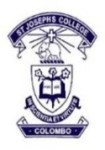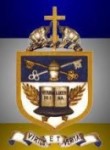Peterite Singers: Keeping musical tradition alive
 W.Aiyyar and Gerard Puvinayagam discuss an observed phenomenon at St. Peter’s College Bambalapitiya that has been noted for well over half a century.
W.Aiyyar and Gerard Puvinayagam discuss an observed phenomenon at St. Peter’s College Bambalapitiya that has been noted for well over half a century.
St. Peter’s College hall was built in 1931 and provided excellent acoustics to all singers and musicians. The performers in turn paid tribute to the hall’s sound-enhancing capacity with their well-rehearsed and first-rate renditions. St. Peter’s College as an institution has always had a deep interest in all forms of music. In addition, many of its students possessed outstanding musical talents which were recognised and appreciated even after they had left school.
Peterite musicians had their own unique style. Many popular bands were dominated by former Peterites. They included musical legends such as : Harold Seneviratne, Micki, Tom, Ralph and Roger Meneazes, Sonny Bartholomeusz, Raddy Ferreira, Patrick Nelson, Arden Nelson, Malcolm de Zilwa and Conrad Silva. Among choir-masters and choristers who were former Peterites were Elsworth Anrado (Dehiwala) Ray Forbes (Dehiwala) Prof. Earle de Fonseka (Bambalapitiya). Choristers in the St. Mary’s Choral Group which was formed in 1967 and was trained by Rev. Fr. Claver Perera, were largely Peterites.
Many priests who served at St. Peter’s College, were a source of strength and example of the Catholic faith. They included Rev. Frs. Basil Wiratunga, Mervyn Weerakoddy, Marceline Jayakody, Arthur N. Fernando, Theodore Peiris, Joe Wickramasinghe. St. Peter’s produced the first school band in Ceylon in 1955. It was the Rev. Fr. Arthur Fernando’s brain-child. Dodwell de Silva was the band leader. He now resides in Australia.
The Peterite school choir, since the 1940s, excelled in Gregorian chants to such an extent, that their chant truly sounded divine.
Guitarists among the Peterite fraternity were Winston Jayawardene (classic) both musician and teacher. Alfo Paiva was a lead guitarist, rock music being his forte. He performed with Gabo and The Breakaways, Sohan and the Experiments.
The following describes some of the outstanding former Peterite singers and their unique musical talents:
-
Tenor Nihal Fonseka’s voice is of operatic quality. He has sung in Sri Lanka and abroad to captive audiences. Nihal is now resident in Canada and performs regularly at public concerts and at church services. He is married a second time, his wife Eve being a soprano who often performs with her husband.
-
Bill Forbes has been London – based from the early fifties. Bill worked at the Shell Co. of Ceylon. His voice had a high-frequency vibrato that was hardly heard in his pop rendition. With proper training he could have risen to classical heights of a famous tenor. However he opted for pop music. His repertoire ranged from local pop music to `Ave Marias’. His own compositions that ranged from `Believe in me’ to the light – hearted trilingual “Oh to be in Yengeland” with snatches of carnatic music are still remembered.
-
The Rev. Fr. Claver Perera has a Caruso type robust tenor voice. He returned to Ceylon from Rome in the late sixties. He founded the St. Mary’s Choral Group in (1967) whose members were largely Peterites. Now resident at the National Seminary, Ampitiya, Fr. Claver trains young seminarians in vocal music and elocution. He also teaches English, being a graduate of the University of Peradeniya (Jennings era).
-
Bede Zilwa is a high – register Tesatura tenor. His voice is on disc in Australia. He also sings Church solos. He was a well known radio artiste whilst in Sri Lanka. Bede now lives in Australia with his second wife. Sal, who hails from the island of Tonga. As a lyric tenor, Bede takes high Cs with the greatest of ease while he rolls off the low notes with equal panache.
-
Mellifluous baritone Douglas de Niese was born to sing. A graded Radio Ceylon artiste, he also made on invaluable contribution to the St. Mary’s Choir, Dehiwala, together with his lovely wife Estelle, a teacher of vocal music and a fine mezzo soprano. Douglas’s memorable renditions will always be perennial favourities . For example: “I’ll Walk Beside You” and “Loves Old Sweet Song”.
-
Light baritone Vernon Crusz performed over Radio Ceylon in the fifties, singing perennial favourites. Vernon’s father, Michael Crusz, was on the staff of St. Peter’s College.
-
Desmond Kelly, now residing in Australia, is a pop singer of repute. His “Dream World” was a memorable number heard over Radio Ceylon.
-
Green-eyed Dennis Roberts joined the navy to see the world. He will always be remembered for his effortless vocal renditions.
-
Light tenor Dr. Tony Don Michael was a most enthusiastic and correct tenor. When Luigi Infantine visited Ceylon in 1955 and sang in the College Hall, Tony later sang privately for him. Tony did well in the field of medicine and he is now an eminent cardiologist who lives in the USA. Gerard Puvinayagam (Lyrical Tenor) is a graded Radio Ceylon artiste who performed in the sixties and seventies. He was a member of St. Mary’s Choir Bambalapitiya, and also a soloist. He commenced his self trained vocalizations in the early sixties. Gerard is thankful to Neville de Cruse, Librarian of the Medical Faculty, Colombo, for his knowledgeable advice on intercostals breathing and diaphragmatic control, when one’s voice is emitted in the bel canto style. Bel canto also produces a purity of tone which calls for maximum use of the head register. This austere and classical style also epitomizes good singing to those of that school.
-
Pop singer Steve de Silva performed regularly at concerts and dances in hotels.
-
Baritone Rohan Jayawardena has lots of quality. He is rarely heard these days, except at weddings, funerals and at St. Mary’s Church, Dehiwela. The timbre of his voice has a resonating nasal quality, like that of his guru Douglas de Niese.
-
Malcom de Zilva is an accomplished saxophonist similar to maestro Harold Seniviratne. He was sought after by popular bands.
-
Prof. Earle de Fonseka was both conductor of the Symphony Orchestra of Ceylon as well as the Catholic Choral Society. He was also a choir-master at St. Mary’s Church, Bambalaptia. Earle was considered an amateur conductor of the Symphony Orchestra of Ceylon. He kept western classical music alive in the Island. Without his efforts, many generations would not have had this type of exposure. He always channelled his energies towards inculcating knowledge in the young who were keen to learn. He had a rare collection of musical scores and recorded music of the great masters covering classical, romantic and choral. In a nutshell, this former Peterite’s contribution is outstanding.
Earle de Fonseka’s academic qualifications included: Bachelor of Music London; Professor of Privative Medicine Colombo; Dean of the Faculty of Medicine – Colombo University 1988; Professor of the Institute of Post Graduate Medicine, Colombo. Fame rested lightly on Earle de Fonseka and simplicity was his main feature. -
Harold Seneviratne, Mickey, Tom Ralph and Roger Menezies in the 1950s and 60s were the popular bands during that period. Harold was unparallel during that era and the image of St. Peter’s College, really stood tall.
-
Patrick Nelson was a lobby pianist in the seventies who had a wide repetoire. He was much sought after especially by hotels. He died in a tragic bus accident, the victim of misplaced hospitality by his many admirers who plied him with liquor. Finally, Patrick missed his footing on the bus when he boarded the bus to go home.
-
Mano Chanmugam is a pianist with a delicate touch, who was a marvel at improvisation. An engineer by profession he helped to structurally modernize St. Peter’s College Hall.
-
Tony Ambrose is a walking encyclopedia. He possesses an in- depth knowledge of vocal music. His enthusiasm has spurred him to visit many opera houses at his own expense. Among these are La Scalla, Milan, Vienna Opera House – Austria; Covent Gardens, London the Metropolitan, New York and the French opera house in Paris. Tony Ambrose aspired to be a tenor but eventually realized he was cut out for intellectual pursuits. His father, John Ambrose was on the staff of St. Peter’s College in the forties and fifties.
-
Sunil Perera is the leader of the Gypsies and he is their soloist. His renditions are full of catchy and homely humour. He is widely appreciated both here and abroad. He is much sought after for concert appearances and commercial advertisements because of his unique style and tone of voice that endears him to millions.
-
The following names are those of old Peterites who became announcers all Radio Ceylon. Jimmy Barucha – of ` Melodies and Memories’ fame, Stephen Alagaratnam –` famous songs by famous singers’; Tommy Perera – Sports round-up; Jimmy Barucha was a legend as a presenter of programmes and the timbre of his speaking voice was a joy to listen to. Stephen Alagaratnam was a member of St. Mary’s Choral group and at St. Mary’s Choir, Bambalpitiya, in the sixties and seventies. A man of many parts, he captained St. Peter’s at rugby and basketball in the sixties. He holds a doctorate in law and is lecturing in the USA. He is a national of Canada.
-
Tony Perera is well known for his sports round-up eagerly looked forward to by young and old.If there were a need for a mixed choir, our sister school Holy Family Convent, Bambalpitiya readily participated. The girls of HFC can boast of an equally rich musical tradition over the years as that of the boys of St. Peter’s College. The Peterite musicians consisted of students from many ethnic groups. Special mention must be made of those who belonged to the Burgher Community for their substantial contribution in upholding the Peterite musical tradition from the forties to the mid-seventies.
[Nation, Sunday Sep 23 2007]




